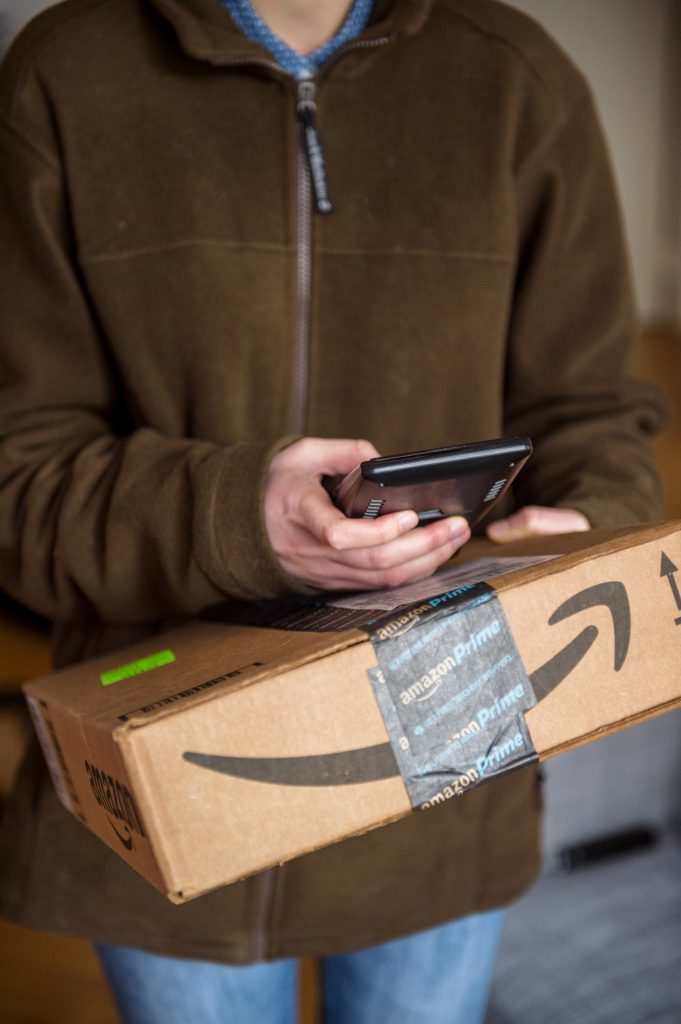Amazon to Deliver ‘Direct to Fridge or Car Boot’ in New Tech Link-Up
12th October 2017

Amazon has been working with tech companies to work out how to gain secure access to your car and your house, even when you are out. The technology has obvious implications for last-mile deliverers.
The company says it has cracked the problem of how to deliver groceries to your fridge or into your car boot, without shoppers even having to be there – thanks to smart access technology.
Amazon is working with an automotive tech company to enable access your car’s boot or hatch; and on a ‘smart doorbell’ that gives one-time access to your home for deliveries. ParcelHero’s Head of Consumer Research David Jinks says: ‘The worry over how to take delivery of items when you are busy at work has never been properly solved. Parcel lockers aren’t always the most convenient solution. How much better if your items were just delivered into your hall or into your car, hassle free?’
And Jinks adds that British shoppers are likely to get smart entry deliveries soon, as the UK is frequently used as a test bed for new Amazon services. Says David ‘UK cities such as London and Birmingham are ideal for testing new tech in high density living areas.’
Sources familiar with the project revealed to US broadcaster CNBC that Amazon’s plans are well along with a company called Phrame, which makes smart car number plates that have a small security box attached. This box contains a spare key to your car and is accessed by a code sent from the Amazon courier’s smart phone. Says David: ‘It sounds revolutionary, but in fact Audi, Volvo and delivery company DHL are all already working on their own version of this pioneering tech as well.’
And smart doorbells that let people into your home are already gaining in popularity both in the US and the UK. Says David: ‘It sounds risky, letting a complete stranger into your house. But this tech would give a one-off entry code, enabling secure delivery of items into your home. Smart doorbell systems are already becoming very popular, and most are also connected to the consumer’s phone camera – so they can see exactly who is gaining access and let them in remotely. Again, this isn’t just pie in the sky; Walmart announced a couple of weeks ago they were trialling something very similar.’
Jinks says there is more to come: ‘We have yet to come to terms with near instant consumer gratification possible through 3D printing, for example. Amazon is even developing vans to print goods en route to the consumer. By 2030 e-commerce will have transformed the way we shop entirely; and Amazon looks set to be leading that charge.’

